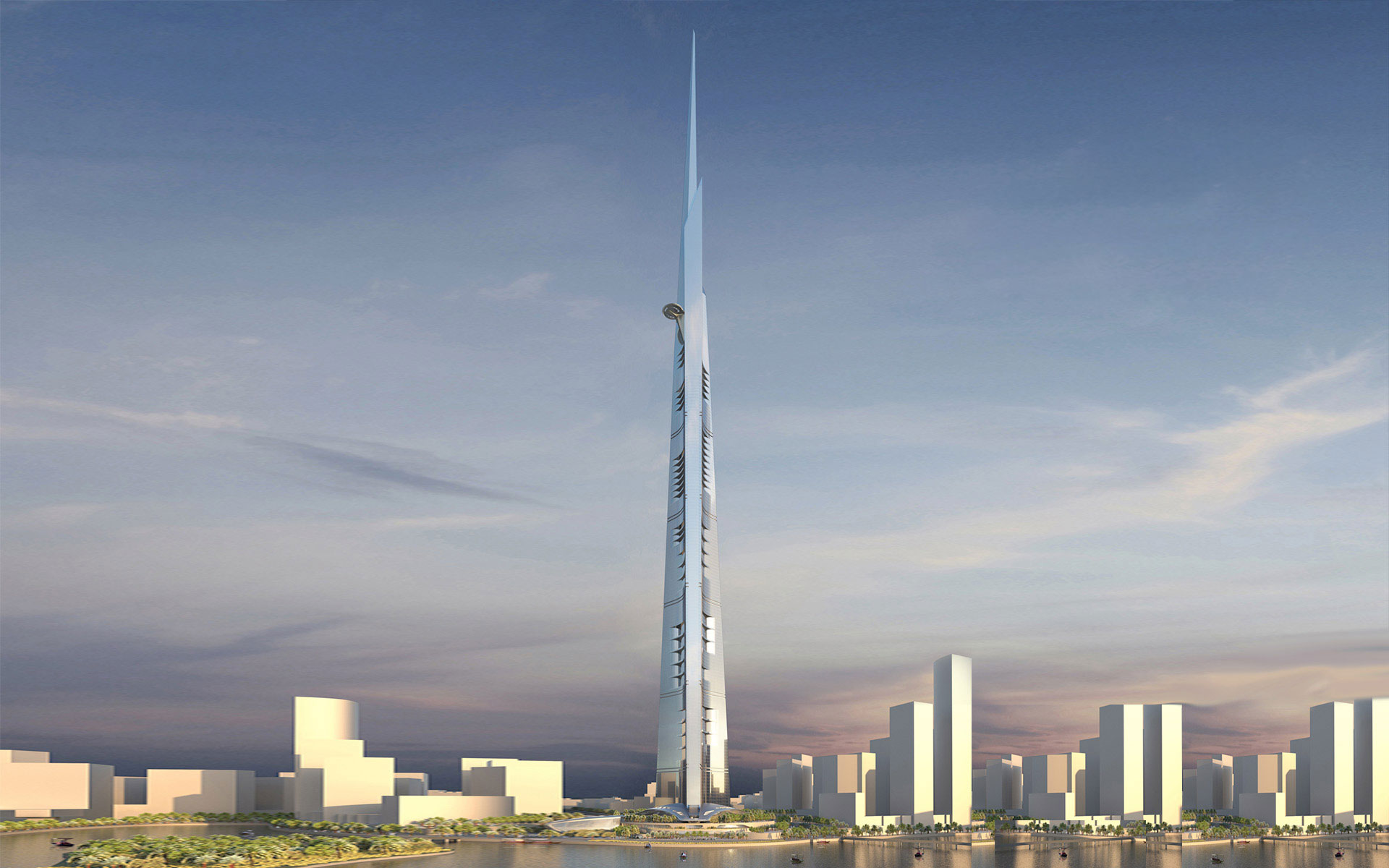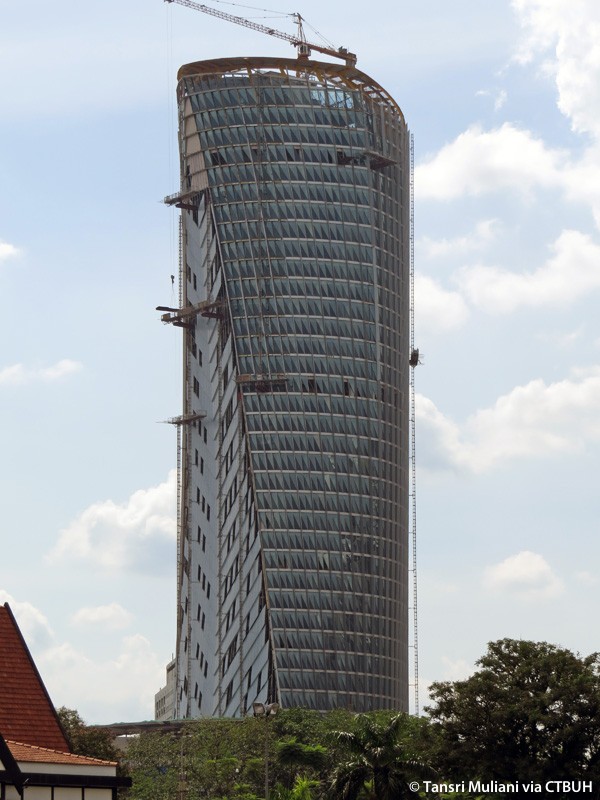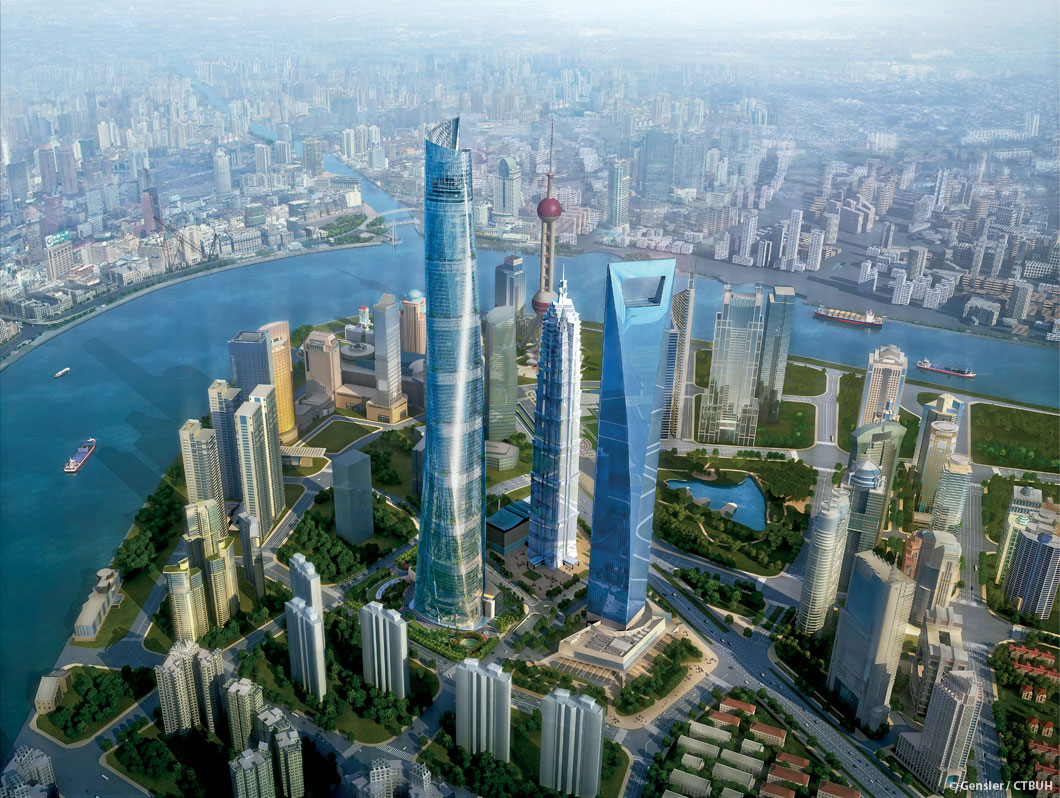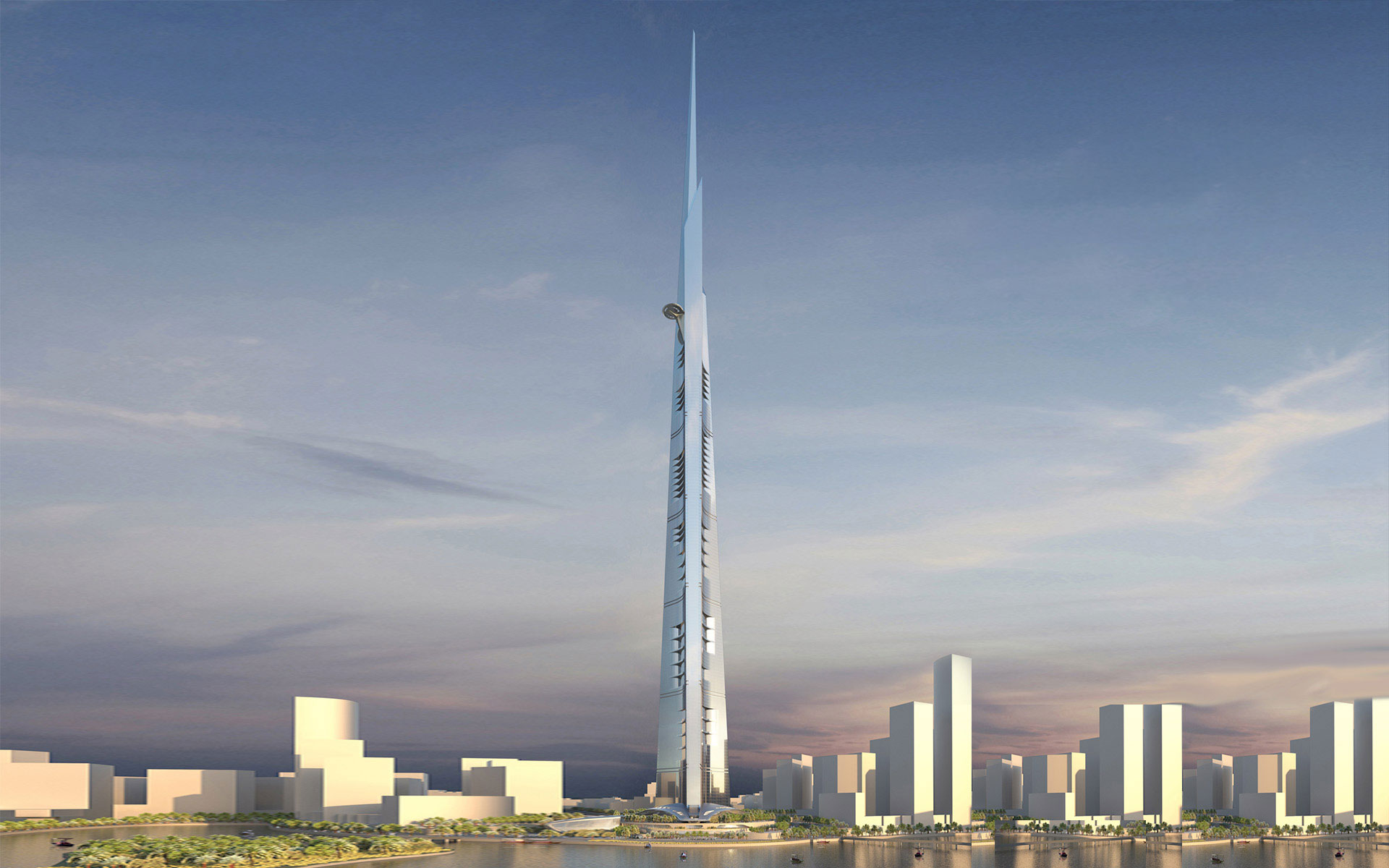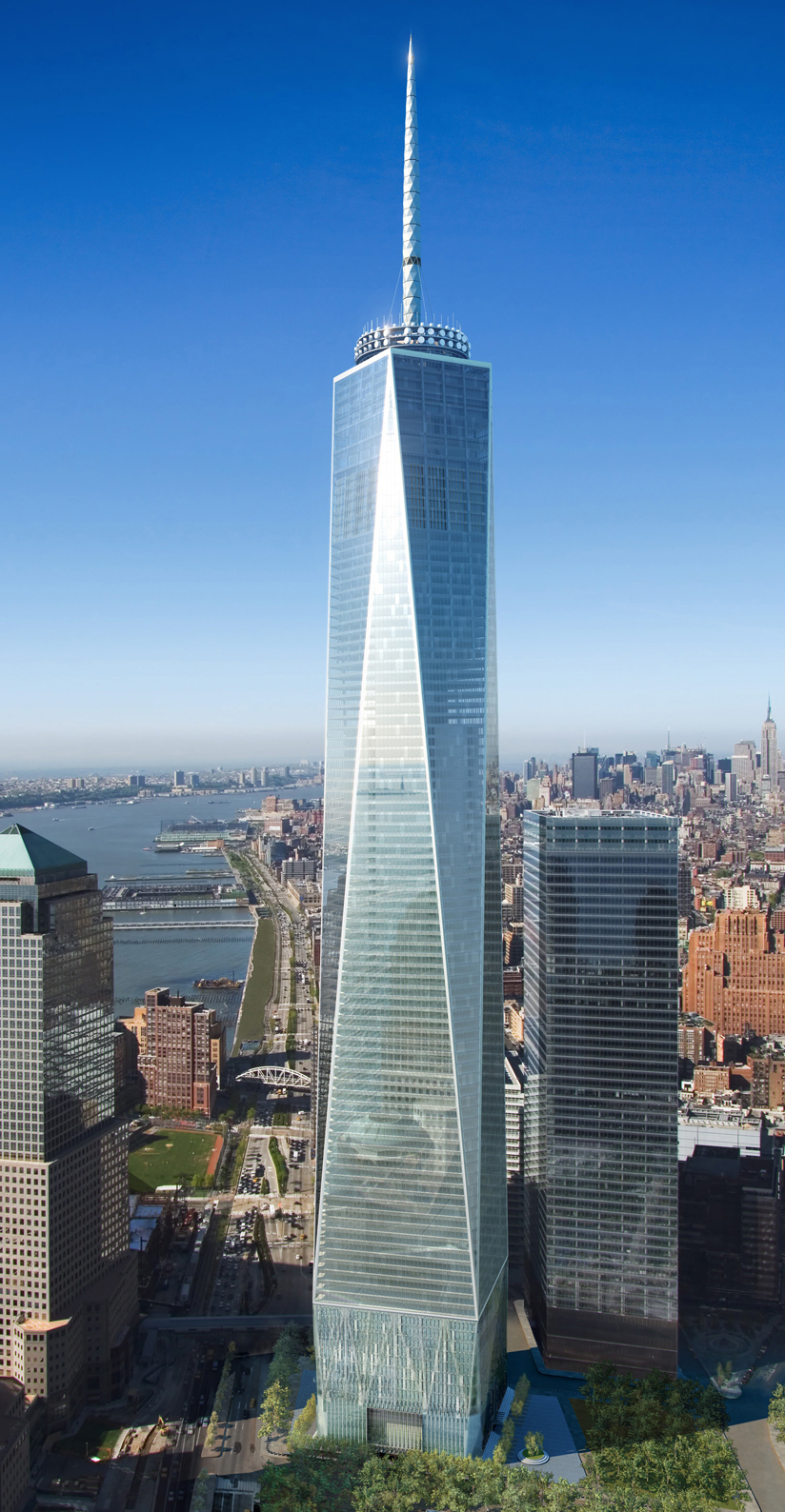Each year, high-rise building experts from the Council on Tall Buildings and Urban Habitat (CTBUH) release their predictions for the worldwide skyscraper industry. They also recap the top tall-building news from the previous year (see "2013: The year of the super-tall skyscraper").
Looking ahead to 2014, CTBUH's Daniel Safarik and Antony Wood predict that between 65 and 90 buildings of 200 meters or more will completed by the end of the year, with as many as 13 projects exceeding the 300-meter barrier. If they're right, 2014 will be a record-setting year for skyscraper construction.
In their report, Safarik and Wood highlight eight major trends and developments in 2014:
1. The Torre Costanera, at 300 meters, will be South America’s tallest building and its first in the 'supertall' category (300 to 399 meters)
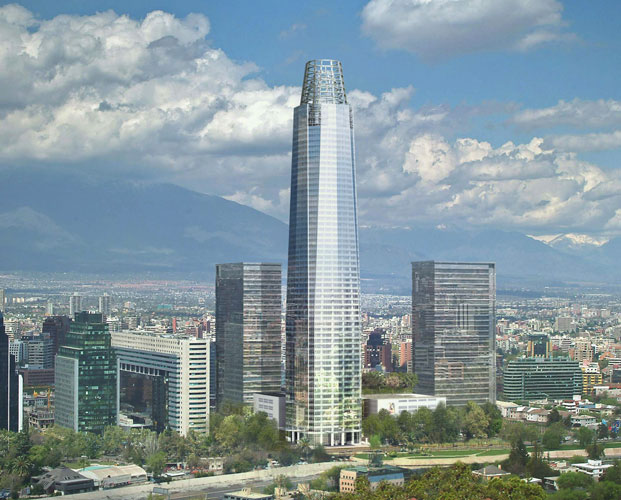
More on the Torre Costanera project via CTBUH
2. Twisting towers will continue to enter the vanguard of tall in 2014.
The KKR2 Tower of Kuala Lumpur, Malaysia (pictired), and the Spine Tower of Istanbul, Turkey, lead the list of new twisting towers.
3. A typically curvaceous Zaha Hadid-designed tower, the Wangjing SOHO T1, will open in Beijing this year.
This building was the subject of piracy rumors early last year when a highly similar tower group, the Meiquan 22nd Century in Chongqing, was revealed. The race is on in earnest to see if the original finishes before the “copy.”
4. The Shanghai Tower finished its concrete core in 2013.
The 632-meter tower, originally set to complete in 2014, will boast the world’s fastest elevators, as well as innovative use of double skins and sky lobbies. Its construction has been and will continue to be one of the most closely watched spectacles in the tall-building universe. Even if the completion date slips into 2015, as now seems likely, Shanghai Tower will likely be China’s tallest building for at least a period of time, depending on the progress of rivals Ping An Finance Center (660 meters), Wuhan Greenland Center (636 meters), and possibly Sky City J220.
5. The China Broad Group’s Sky City J220, an 828-meter, 220-story building to be constructed entirely of prefabricated modules, may or may not have gotten underway, according to conflicting reports, and may or may not complete in 2014.
Either way, the world will be watching. Unshaken by skeptical peers and media and bureaucratic hurdles, Broad Group Chairman Zhang Yue has vowed the project – aiming to become the world’s tallest before Kingdom Tower takes the title – will continue.
6. Kingdom Tower, set to become the world’s next-tallest building at 1,000 meters, broke ground in Jeddah, Saudi Arabia, in 2013.
The industry will be closely watching its out-of-ground progress in 2014. Intended to evoke a bundle of leaves shooting up from the ground, the faceted three-wing tower will cost $1.2 billion to construct and contain 167 floors.
7. When completed in 2014 at its intended, symbolic 1,776 feet (541 meters), One World Trade Center in New York will gain status as North America’s tallest building.
The announcement of CTBUH’s ratification of this height in 2013 drew commentary from the global press, Chicago mayor Rahm Emmanuel, and television comedian Jon Stewart—so a little more buzz when we “make it official” in 2014 can be expected.
8. The first of the crop of “superslim” towers in Midtown Manhattan, the 306-meter One57, will be completed, upping the ante for its even-slimmer rivals along 57th Street.

More on the One57 project via CTBUH
Read CTBUH's full report: "Year in Review: Tall Trends of 2013"
Related Stories
Building Technology | Jun 18, 2024
Could ‘smart’ building facades heat and cool buildings?
A promising research project looks at the possibilities for thermoelectric systems to thermally condition buildings, writes Mahsa Farid Mohajer, Sustainable Building Analyst with Stantec.
University Buildings | Jun 18, 2024
UC Riverside’s new School of Medicine building supports team-based learning, showcases passive design strategies
The University of California, Riverside, School of Medicine has opened the 94,576-sf, five-floor Education Building II (EDII). Created by the design-build team of CO Architects and Hensel Phelps, the medical school’s new home supports team-based student learning, offers social spaces, and provides departmental offices for faculty and staff.
Healthcare Facilities | Jun 18, 2024
A healthcare simulation technology consultant can save time, money, and headaches
As the demand for skilled healthcare professionals continues to rise, healthcare simulation is playing an increasingly vital role in the skill development, compliance, and continuing education of the clinical workforce.
Mass Timber | Jun 17, 2024
British Columbia hospital features mass timber community hall
The Cowichan District Hospital Replacement Project in Duncan, British Columbia, features an expansive community hall featuring mass timber construction. The hall, designed to promote social interaction and connection to give patients, families, and staff a warm and welcoming environment, connects a Diagnostic and Treatment (“D&T”) Block and Inpatient Tower.
Concrete Technology | Jun 17, 2024
MIT researchers are working on a way to use concrete as an electric battery
Researchers at MIT have developed a concrete mixture that can store electrical energy. The researchers say the mixture of water, cement, and carbon black could be used for building foundations and street paving.
Codes and Standards | Jun 17, 2024
Federal government releases national definition of a zero emissions building
The U.S. Department of Energy has released a new national definition of a zero emissions building. The definition is intended to provide industry guidance to support new and existing commercial and residential buildings to move towards zero emissions across the entire building sector, DOE says.
Multifamily Housing | Jun 14, 2024
AEC inspections are the key to financially viable office to residential adaptive reuse projects
About a year ago our industry was abuzz with an idea that seemed like a one-shot miracle cure for both the shockingly high rate of office vacancies and the worsening housing shortage. The seemingly simple idea of converting empty office buildings to multifamily residential seemed like an easy and elegant solution. However, in the intervening months we’ve seen only a handful of these conversions, despite near universal enthusiasm for the concept.
Healthcare Facilities | Jun 13, 2024
Top 10 trends in the hospital facilities market
BD+C evaluated more than a dozen of the nation's most prominent hospital construction projects to identify trends that are driving hospital design and construction in the $67 billion healthcare sector. Here’s what we found.
Adaptive Reuse | Jun 13, 2024
4 ways to transform old buildings into modern assets
As cities grow, their office inventories remain largely stagnant. Yet despite changes to the market—including the impact of hybrid work—opportunities still exist. Enter: “Midlife Metamorphosis.”
Affordable Housing | Jun 12, 2024
Studio Libeskind designs 190 affordable housing apartments for seniors
In Brooklyn, New York, the recently opened Atrium at Sumner offers 132,418 sf of affordable housing for seniors. The $132 million project includes 190 apartments—132 of them available to senior households earning below or at 50% of the area median income and 57 units available to formerly homeless seniors.


